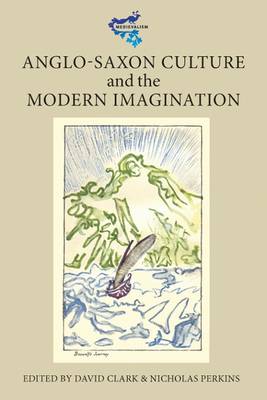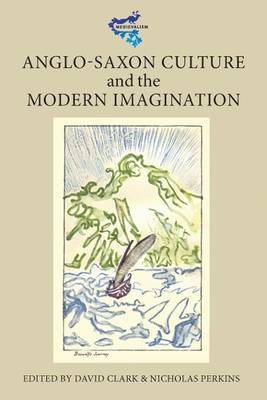
- Retrait gratuit dans votre magasin Club
- 7.000.000 titres dans notre catalogue
- Payer en toute sécurité
- Toujours un magasin près de chez vous
- Retrait gratuit dans votre magasin Club
- 7.000.0000 titres dans notre catalogue
- Payer en toute sécurité
- Toujours un magasin près de chez vous
Anglo-Saxon Culture and the Modern Imagination
209,45 €
+ 418 points
Description
The essays here engage with the ways in which the Anglo-Saxons and their literature have been received, confronted, and re-envisioned in the modern imagination. An excellent collection... breaks new ground in many areas. Should make a substantial impact on the discussion of the contemporary influence of Anglo-Saxon Culture. Conor McCarthy, author of Seamus Heaney and the Medieval Imagination Britain's pre-Conquest past and its culture continues to fascinate modern writers and artists. From Henry Sweet's Anglo-Saxon Reader to Seamus Heaney's Beowulf, and from high modernism to themusclebound heroes of comic book and Hollywood, Anglo-Saxon England has been a powerful and often unexpected source of inspiration, antagonism, and reflection. The essays here engage with the ways in which the Anglo-Saxons and their literature have been received, confronted, and re-envisioned in the modern imagination. They offer fresh insights on established figures, such as W.H. Auden, J.R.R. Tolkien, and David Jones, and on contemporary writers such asGeoffrey Hill, Peter Reading, P.D. James, and Heaney. They explore the interaction between text, image and landscape in medieval and modern books, the recasting of mythic figures such as Wayland Smith, and the metamorphosis of Beowulf into Grendel - as a novel and as grand opera. The early medieval emerges not simply as a site of nostalgia or anxiety in modern revisions, but instead provides a vital arena for creativity, pleasure, and artistic experiment. Contributors: Bernard O'Donoghue, Chris Jones, Mark Atherton, Maria Artamonova, Anna Johnson, Clare A. Lees, Sian Echard, Catherine A.M. Clarke, Maria Sachiko Cecire, Allen J. Frantzen, John Halbrooks, Hannah J. Crawforth, Joshua Davies, Rebecca Anne Barr
Spécifications
Parties prenantes
- Editeur:
Contenu
- Nombre de pages :
- 302
- Langue:
- Anglais
- Collection :
- Tome:
- n° 1
Caractéristiques
- EAN:
- 9781843842514
- Date de parution :
- 21-10-10
- Format:
- Livre relié
- Format numérique:
- Genaaid
- Dimensions :
- 157 mm x 234 mm
- Poids :
- 798 g

Les avis
Nous publions uniquement les avis qui respectent les conditions requises. Consultez nos conditions pour les avis.





